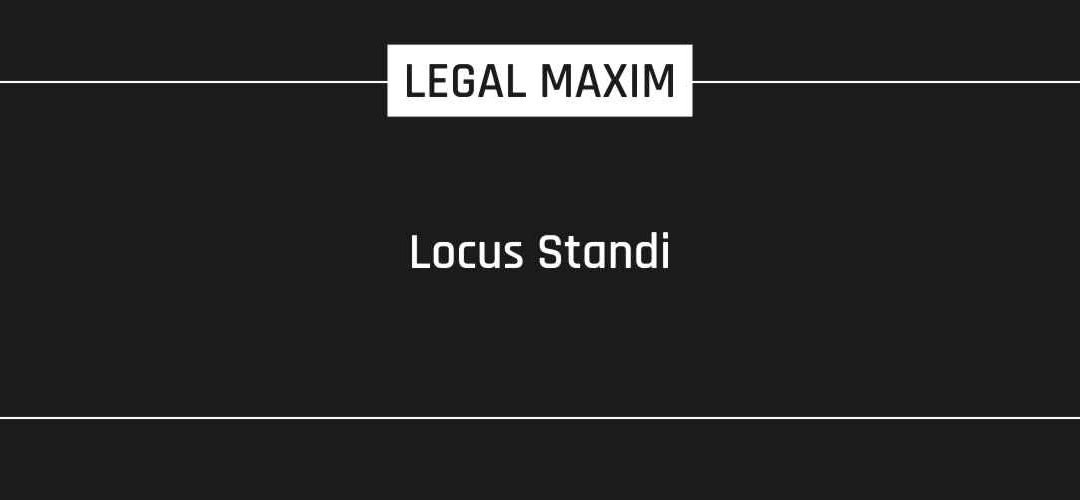Literal Meaning
The right to appear and be heard before a court
Origin
Latin
Explanation
The maxim refers to the right of a party to appear and be heard before a court of law or to institute a suit or an action before the court. For instance, an individual cannot bring a complaint challenging the constitutionality of a law, unless he/she can show that they have been harmed or affected by the law. Contrarily, the court would conclude that the complainant ‘lacks standi’ to file the complaint, and will reject the lawsuit without even taking into consideration, the validity of the unconstitutionality provision raised by him/her.
In legal terms, Locus Standi essentially applies to a plaintiff’s attempt to show to the court that there is ample relation or correlation or cause of action to the plaintiff from the suit. In other terms, it applies to a person’s capacity to put a case before the court of law or to testify before the court of law.
Illustration
A foreign government which has not been recognized by the Indian government has no locus standi in the Indian courts.
Before an application for judicial review can be made, the applicant must prove that they have a locus standi.
Case Laws
In the case of M/S Boc India Ltd vs. the State of Jharkhand & Ors., A Writ Petition was filed before the High Court of Jharkhand at Ranchi, which by reason of the impugned judgment has been dismissed, holding that BOC has no locus standi to file writ petition as admittedly tax was payable by TISCO. The court held that “When it is to be believed that the assessee is an aggrieved party to challenge the legitimacy of the complaint presented thereon, it would have the locus standi to retain a formal grievance.”
In M/S Northern Plastics Ltd vs. Hindustan Photo Films Mfg.Co. Ltd., it was observed by the Supreme Court that the wider concept of locus standi in public interest litigation moved before this Court under Article 32 of the Constitution of India which itself is a fundamental right or under Article 226 before High Courts which also offers a constitutional remedy cannot be imported for deciding the right of appeal under the statutory provisions contained in the Customs Act.
In Jasbhai Motibhai Desai vs. Roshan Kumar, Haji Bashir Ahmed, the Bombay High Court has dismissed the writ petition on the ground that no right vested in the appellant had been infringed, or prejudiced or adversely affected as a direct consequence of the order impugned by him, and as such, he was not an aggrieved person’ having a locus standi in the matter.

Whether a voter in industrial association has locus standi to file a suit challenging elections on ground of bogous voting.